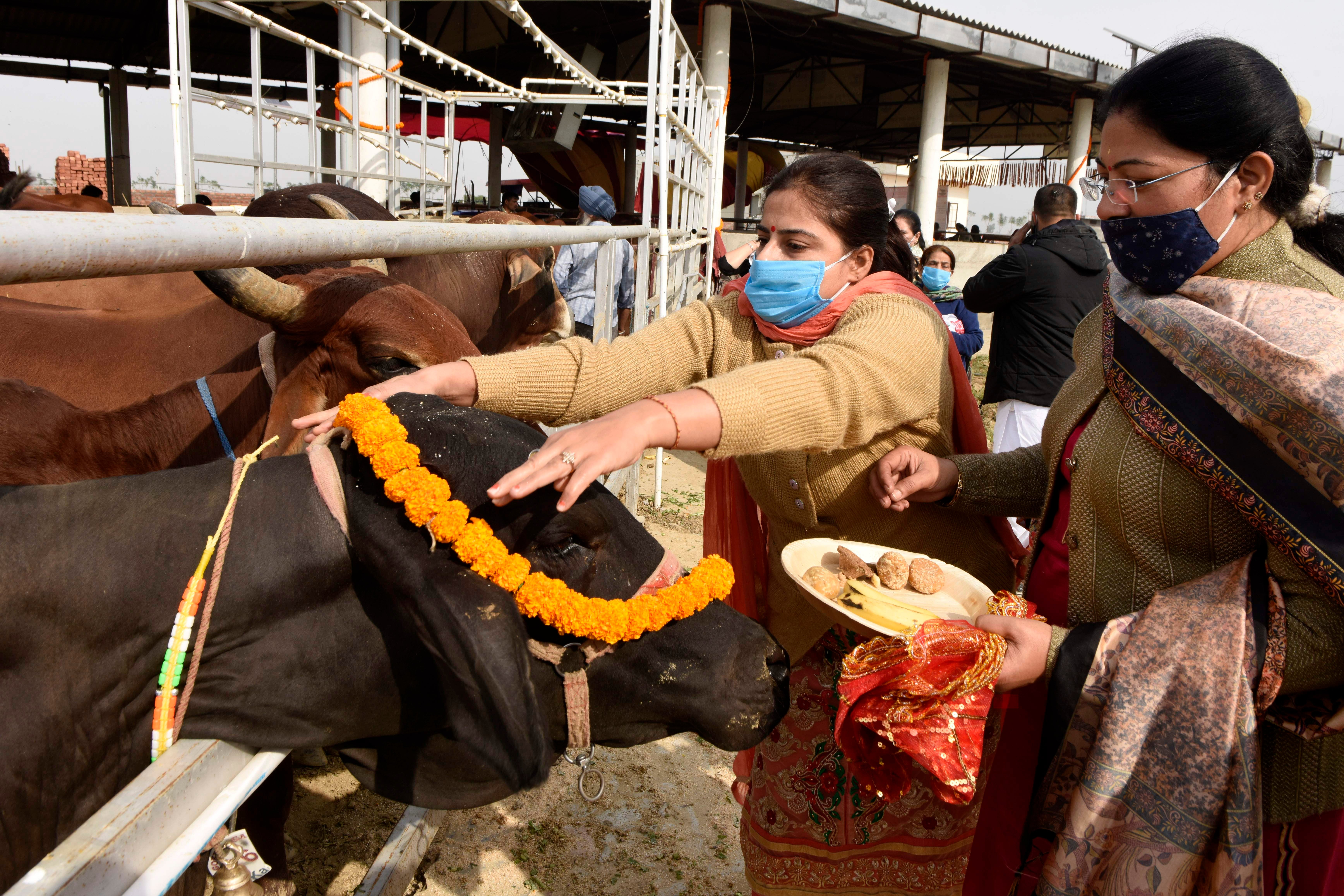Indian minister says beef ban law is needed ‘to protect cow vigilantes’
Cow vigilantes are mobs of people who carry out violent attacks in the name of protecting the animals seen as sacred in Hinduism

An Indian politician has provoked a backlash for suggesting that a law banning the slaughter of cattle was needed to shield vigilantes who violently attack others in the name of cow protection.
The so-called “beef ban” was passed by the lower house of Karnataka’s state assembly on Wednesday, and includes a strict prohibition on the killing of all forms of cattle as well as tough sentences for offenders.
While female cows are revered in Hinduism, some Indian states permit the slaughter of bulls, male buffalos and cows who are elderly or incapacitated.
But states have been increasingly tightening the rules since the Hindu nationalist BJP came to power in 2014, and vigilantism by “cow protection groups” or gau rakshaks has proliferated. Between May 2015 and December 2018 at least 44 people – 36 of them Muslims – were killed across 12 Indian states in the name of cow protection, according to a Human Rights Watch report.
Speaking to NDTV, Karnataka’s deputy chief minister C N Ashwath Narayan said that “life was at risk – for the vigilantes, not those who were in the (cattle) trade”.
Karnataka’s Prevention of Slaughter and Preservation of Cattle Bill, 2020, is a revived version of a bill which the BJP last tried to pass when it was in power in the state in 2010.
That bill was shelved in 2013 by the then-Congress party government, meaning laws reverted to a 1964 act that outlawed the killing of “any cow or calf of she-buffalo", but permitted the slaughter of bullocks, male buffalo or a female if it was certified by a competent authority to be above the age of 12 years, incapacitated for breeding or deemed sick.
Under the new bill, those found guilty of smuggling, illegal transportation, “atrocities” or slaughter of cows can be jailed for three to seven years and fined up to £5,000.
And there is a vague clause in the bill that shields from legal action any "persons acting in good faith”. While it was initially unclear whether this applied to cow vigilantes, Mr Narayan told NDTV it was drafted with them in mind.
"Vigilantes or anyone who is working for a cause and the law of the land should definitely have a scope to work in this provision," he said.
The deputy chief minister claimed that vigilantes in Karnataka were in fact putting themselves at great risk for the sake of cows. "People in the (cattle) trade were completely armed. They were taking lives and killing people. It is not the vigilantes,” he said without supporting it with any substantial evidence.
Opposing the bill, opposition JD(S) party leader and former chief minister H D Kumaraswamy in a statement said that his party was not in favour of the bill since it is likely to increase economic difficulties for cattle and dairy farmers.
He said: “In the present law, farmers will be forced to tend to male bullocks, aged cows and unwell cattle. These are unviable conditions imposed on farmers, which will cause an economic burden. As a consequence of the law, farmers may stop rearing cattle and this will affect milk production, on which many families are dependent for livelihood.”
The enactment of the law is, however, set to be delayed until the next session, as the BJP government in the state does not have a majority in the upper house and it has adjourned the winter session.
Join our commenting forum
Join thought-provoking conversations, follow other Independent readers and see their replies
Comments


Bookmark popover
Removed from bookmarks